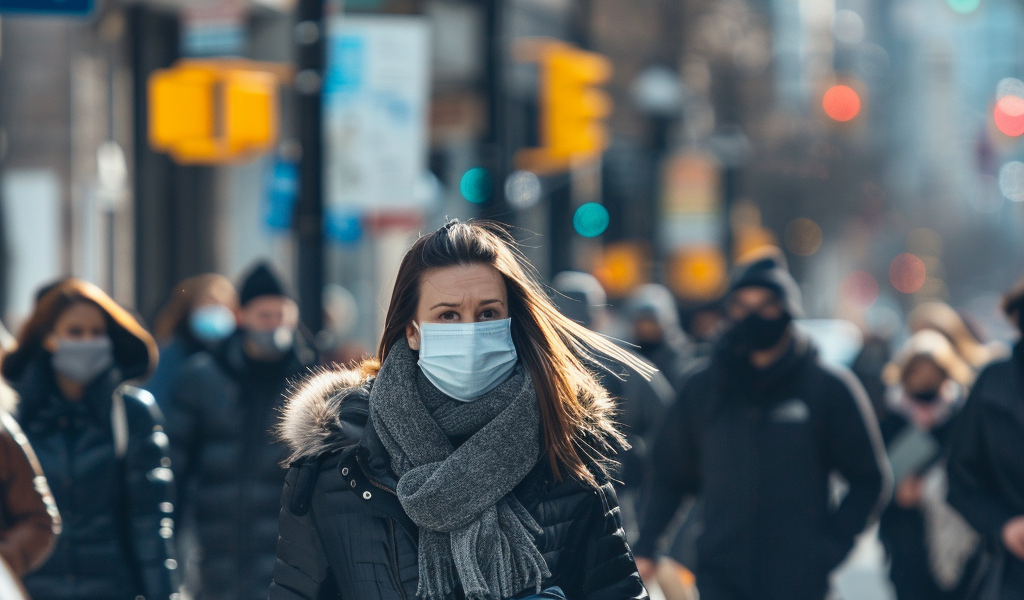Ottawa, Canada – As the month of March begins, Ottawa continues to grapple with the steady presence of COVID-19, flu, and RSV. While the Kingston area has seen a decline in high-risk respiratory cases, Ottawa’s weekly respiratory update from Ottawa Public Health (OPH) paints a stable picture, with some areas experiencing very high flu trends compared to low-to-moderate COVID-19 and RSV levels.
Health experts are urging the public to take preventive measures such as covering coughs, wearing masks, maintaining hand hygiene, staying home when sick, and keeping up with COVID and flu vaccinations to protect themselves and vulnerable individuals. OPH has emphasized that the city’s health-care institutions remain at high risk from respiratory illnesses and will continue to do so until respiratory trends subside.
In Ottawa, the coronavirus wastewater average has remained stable for approximately three weeks as of March 4, with OPH categorizing the level as moderate. The city’s weekly average test positivity rate stands at a stable eight per cent, which is considered low by OPH. Additionally, the number of new COVID-related hospitalizations in the city is reported as low, with the active COVID outbreak count decreasing to six and a moderate number of new outbreaks.
According to OPH’s monthly COVID vaccination update, 23 per cent of eligible residents have received the latest vaccine since the rollout began in mid-September 2023, marking a one per cent increase from the previous month. However, this data does not account for immunity from prior infections. After nearly four years, OPH has discontinued its COVID-specific dashboard, with much of the information now integrated into OPH’s respiratory updates. The province continues to share data on COVID deaths, albeit with a longer reporting lag compared to OPH.
Meanwhile, the Kingston area’s health unit has announced that it is no longer in the midst of high-risk respiratory territory, indicating a positive shift in the region’s respiratory landscape.





